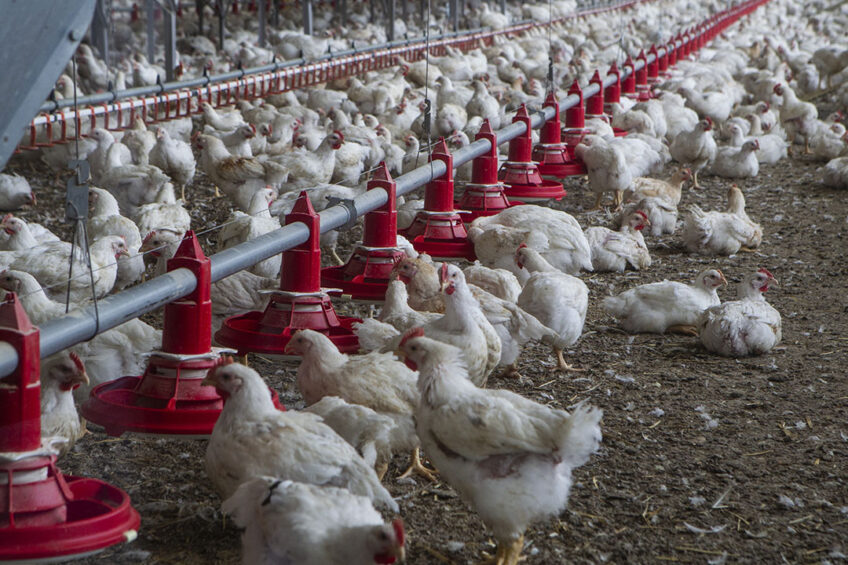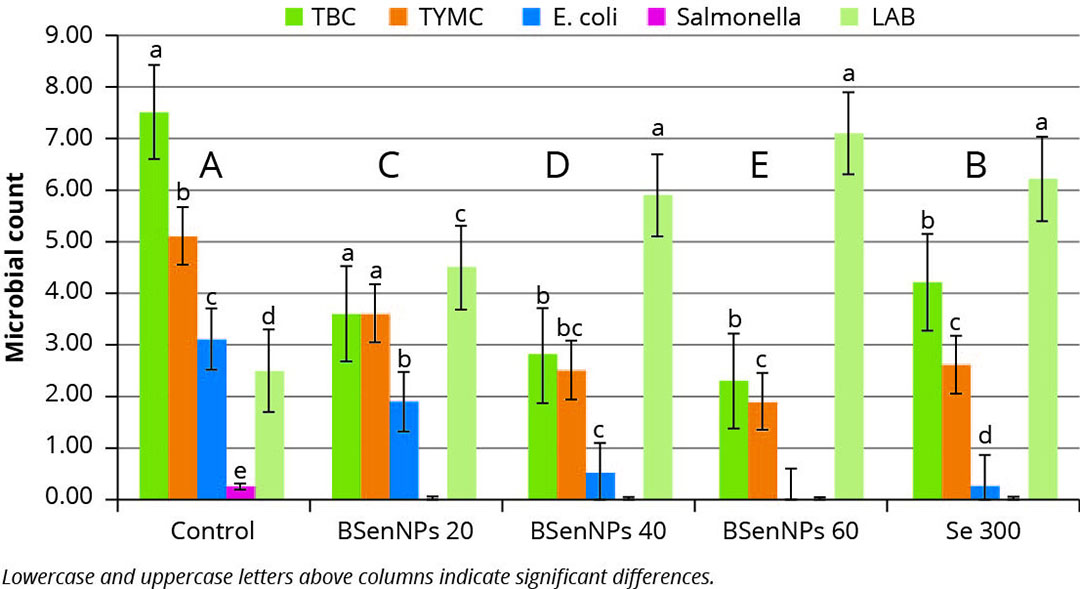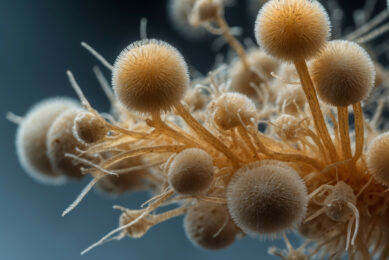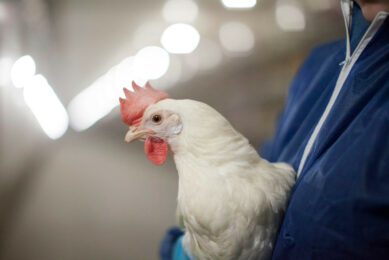Eco-friendly selenium nanoparticles boost broiler performance and gut health

In a recently published study, researchers employed Bacillus subtilus DA20 isolate to produce eco-friendly selenium nanoparticles that were shown to be beneficial for growth performance, carcass characteristics, and gut health in broiler chickens.
Studies show that selenium (Se) is one of the micronutrients needed for enhancing gut microbiota and oxidative stress, improving performance, meat quality, and the antioxidant safety of poultry products. Owing to its role in glutathione peroxidase synthesis, selenium has an important function in preventing the oxidation of cells and cell membranes.
Studies show that Se in the form of nanoparticles has lower toxicity, higher bioavailability, and lower excretion in animals than traditional chemical forms of dietary Se. Traditionally, the use of chemical and physical methods to produce nanomaterials was common. However, both procedures have drawbacks, such as the high cost of using expensive techniques with high pressure and temperature, and safety issues related to the environment. The emergence of bio-nanotechnology presents a novel and innovative technology in today’s animal industry. Since soil is a medium rich in various minerals, it is a favourable environment for microorganisms to reduce these metals and produce nanoparticles. Recent research work is therefore focusing on the possible fabrication of nanoparticles by soil microbes via biological mechanisms. In this study, researchers used Bacillus subtilus DA20 isolate to produce eco-friendly selenium nanoparticles and investigated their effects on growth performance, carcass characteristics, blood parameters, and gut health of broiler chickens.
The study
In a study published in the Poultry Science journal, Bacillus subtilus DA20 isolate that was identified at the gene level was employed to produce eco-friendly selenium nanoparticles (SeNPs) and investigate their effects on growth performance, carcass characteristics, blood parameters, and the gut microbiota of Indian River broiler chickens. The selenium nanoparticles thus obtained were spherical with a size of 56 nm and a net negative charge of -22.36 mV. The Se nanoparticles (SeNPs) diet was compared to normal-sized selenium (Bulk Se) as a source of selenium for the birds.
The diets were as follows:
Control diet: basal diet with no supplementation of Se nanoparticles (0 µg/kg of SeNPs),
Se nanoparticles (SeNPs) diets: at 20, 40, and 60 µg/kg of SeNPs,
Bulk Se: 300 µg/kg bulk selenium (normal-sized selenium source).
Antioxidant activity and antibacterial effects
The diphenylpicrylhydrazyl (DPPH) method was used to test the antioxidant activity of the different concentrations of Se (10 µg/mL to 60 µg/mL) and compared to the antioxidant activity of ascorbic acid . It was found that the antioxidant activity of selenium nanoparticles increased with increasing concentration of the selenium nanoparticles, where SeNPs (60 µg/mL) scavenged 90% of DPPH free radicals with no significant differences to ascorbic acid’s 92%.
Similar to antioxidant efficacy, the selenium nanoparticles exhibited antibacterial activities with increasing concentration (10 µg/mL to 60 µg/mL), with the efficacy of the highest concentration (60 µg/mL) not different when compared to the antibiotic effects of levofloxacin.
The bacterial selenium nanoparticles exhibited antibacterial activity against pathogenic bacteria, Bacillus cereus , Staphylococcus aureus, Campylobacter jejuni , and Escherichia coli with inhibition zone diameters ranging from 0.7 cm to 3.2 cm. Staphylococcus aureus was the bacteria that was most sensitive to selenium nanoparticles, with Campylobacter jejuni the least affected.
According to the scientists, the antibacterial activity of selenium nanoparticles was equally superior compared to the antibiotic levofloxacin and this was related to the nanoparticles having different mechanisms against bacteria; in addition to their nano size, the antibacterial capability of selenium nanoparticles may affect DNA replication, protein synthesis, and metabolism, affecting the plasma membrane’s functioning and integrity, according to the researchers.
Improved growth performance
Dietary supplementation with selenium nanoparticles significantly improved growth performance as observed by increased body weight gain and lowered FCR values compared to both the unsupplemented diet and the bulk selenium (normal-sized) diet. The FCR of the control and the bulk Se groups was 1.655 and 1.569, respectively, while the FCR values for the selenium nanoparticles groups were 1.500, 1.490 and 1.485 for the inclusion levels of 20, 40 and 60 µg/kg SeNPs. The carcass or meat quality measurements showed that the addition of selenium nanoparticles (60 µg/kg) reduced the fat content in the broiler by 20% and 18% compared to the control and the bulk selenium, respectively. With the maximum concentration of selenium nanoparticles, the breast muscle significantly increased by 19% and 16% compared to the unsupplemented diet and bulk selenium, respectively. The carcass and liver weights were also highest with the supplementation of 60 µg/kg SeNPs.
Figure 1 – The effect of dietary SeNPs on the gut microbiota of broilers.

Probiotic effects
The results (Figure 1) show that total bacterial count (TBC), total yeast mould count (TYMC), E. coli, and Salmonella counts significantly decreased with SeNPs and Se (Se 300 or bulk Se) supplementation compared to the selenium-unsupplemented (control) group. Supplementation with selenium nanoparticles at the maximum level (60 µg/kg) had the most significant effect on decreasing the TBC, TYMC, E. coli, and Salmonella counts. On the other hand, lactic acid bacteria (LAB) significantly increased with SeNPs supplementation, showing a two-fold increase over the control, proving the beneficial effects of selenium nanoparticles in enhancing the beneficial bacteria while reducing pathogens.
Concluding remark
Researchers highlighted the fact that their study proves Bacillus sp. can reduce sodium selenite to bacterial selenium nanoparticles that possess antioxidant and antibacterial properties, owing to the nanosized structure and presence of active groups. They concluded: “Dietary supplementation with bacteria-produced selenium nanoparticles enhances broiler performance, intestinal architecture, mucosal protection, and the number of beneficial gut microorganisms.”











